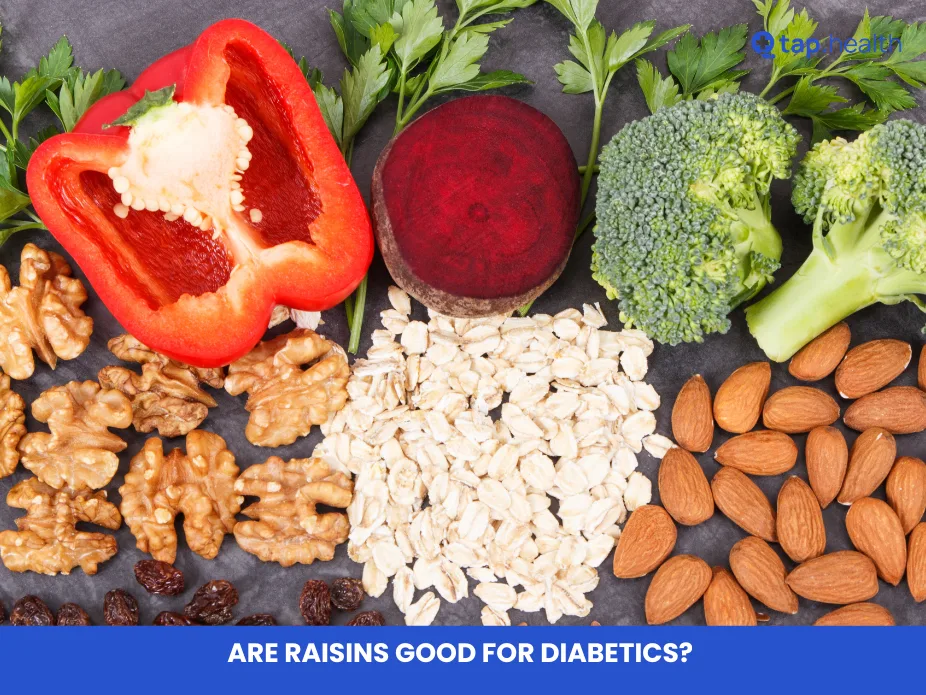We all know that sleep is essential for our physical and mental well-being, but have you ever considered how sleep affects your food choices? The connection between sleep and nutrition is more profound than many realize. Quality sleep not only impacts your energy levels and mood but also plays a significant role in how you eat and what you crave. Poor sleep can lead to unhealthy food choices, overeating, and disruptions in your metabolism, while good sleep can help you make more balanced, health-conscious decisions.
In this article, we’ll dive into the science behind how sleep influences your nutritional choices, the mechanisms at play, and practical tips on how to improve your sleep for better eating habits.
How Sleep Affects Your Brain and Appetite
The brain is a powerful organ that regulates many bodily functions, including hunger and appetite. Several factors influence your eating habits, including hormones, stress levels, and sleep quality. When you don’t get enough sleep, your brain’s ability to regulate hunger and cravings becomes compromised, making it more difficult to make healthy food choices.
1. Hormonal Imbalance: Ghrelin and Leptin
Two key hormones, ghrelin and leptin, play a major role in regulating hunger and satiety. Ghrelin is known as the “hunger hormone” because it stimulates appetite, while leptin is the “satiety hormone” that signals when we’re full.
- Ghrelin: When you don’t get enough sleep, your body produces more ghrelin, which increases hunger and cravings for high-calorie foods.
- Leptin: Lack of sleep reduces leptin levels, which means you don’t feel as full after eating, leading to overeating.
Research shows that people who are sleep-deprived have an increased appetite, particularly for calorie-dense, high-sugar, and high-fat foods. This is a survival mechanism that your body uses to seek quick sources of energy when it’s feeling tired or under stress.
2. Increased Cravings for Unhealthy Foods
When you’re sleep-deprived, your brain’s reward system becomes more sensitive to food, especially comfort foods. This sensitivity increases cravings for foods high in sugar, fat, and refined carbohydrates. These foods trigger the release of dopamine, a neurotransmitter associated with pleasure and reward, providing a temporary “feel-good” effect.
However, this reward system can work against you. Instead of nourishing your body with whole, nutrient-dense foods, your body craves foods that provide quick energy but are often low in nutritional value.
3. The Influence of Sleep on Willpower and Decision Making
Sleep deprivation also affects your ability to make rational decisions. When you’re tired, your prefrontal cortex (the part of your brain responsible for decision-making and impulse control) doesn’t function as effectively. This leads to poor judgment and increased impulsivity, making it harder to resist unhealthy food choices.
A study published in the Journal of Clinical Endocrinology & Metabolism found that individuals who were sleep-deprived made poorer food choices, opting for higher-calorie, less nutritious options.
4. Disruption of the Circadian Rhythm and Eating Habits
Your body’s circadian rhythm, also known as the internal clock, regulates various physiological processes, including your sleep-wake cycle and appetite. Poor sleep quality or inconsistent sleep patterns can disrupt this rhythm, leading to irregular eating habits and altered hunger cues.
For instance, if you’re staying up late or waking up too early, your hunger signals may be misaligned with your natural energy needs. This can cause you to eat when you’re not hungry or to crave certain foods at odd times, such as late-night snacking.
Real-Life Scenarios
Let’s take a look at a few examples to understand how sleep quality impacts nutritional choices in everyday life:
- Rachel works long hours at a stressful job. She regularly gets less than six hours of sleep a night, and as a result, she finds herself reaching for sugary snacks and caffeine to keep her energy up throughout the day. Her cravings for processed foods are often strongest in the afternoon, when her energy levels dip, and she ends up consuming more than she needs to feel “awake.”
- John, on the other hand, prioritizes getting eight hours of sleep each night. He notices that when he’s well-rested, he’s able to make healthier food choices, such as opting for whole grains, vegetables, and lean proteins. He also has more control over his appetite, and his cravings for junk food are significantly reduced.
These examples show how sleep can directly affect not only what you choose to eat but also how much you eat and when you eat. A lack of sleep can easily derail healthy eating habits, while a good night’s rest can help you make better decisions when it comes to food.
How to Improve Your Sleep and Enhance Nutritional Choices
Given the strong link between sleep and nutrition, improving the quality of your sleep can help you make better food choices. Here are some practical tips to optimize both your sleep and your eating habits:
1. Establish a Consistent Sleep Schedule
Your body thrives on routine, and maintaining a regular sleep schedule is essential for regulating your circadian rhythm. Try to go to bed and wake up at the same time every day, even on weekends. This helps set a consistent pattern for your sleep and appetite hormones, making it easier to control hunger and cravings.
2. Avoid Caffeine and Sugar Late in the Day
Caffeine and sugar can disrupt your sleep by stimulating the nervous system, making it harder to fall asleep and stay asleep. If you’re sensitive to caffeine, avoid consuming it in the afternoon or evening. Similarly, sugary snacks or drinks before bed can cause blood sugar spikes and crashes, which can interfere with your sleep cycle and make you more likely to crave unhealthy foods the next day.
3. Create a Relaxing Bedtime Routine
To ensure high-quality sleep, develop a bedtime routine that helps signal to your body that it’s time to wind down. This could include activities such as reading, taking a warm bath, or practicing relaxation techniques like deep breathing or meditation. Avoid engaging with electronic screens (e.g., smartphones, computers) at least 30 minutes before bed, as blue light can interfere with melatonin production, the hormone responsible for regulating sleep.
4. Eat a Balanced Diet to Support Sleep
Certain foods can actually help promote better sleep by supporting the production of sleep-regulating hormones. Consider incorporating the following foods into your evening meals:
- Tryptophan-rich foods: Tryptophan is an amino acid that helps produce serotonin and melatonin, both of which play a role in regulating sleep. Foods like turkey, eggs, nuts, seeds, and dairy are excellent sources.
- Magnesium: Magnesium is a mineral that helps relax muscles and calm the nervous system, promoting restful sleep. Foods like leafy greens, almonds, pumpkin seeds, and bananas are rich in magnesium.
- Complex carbohydrates: Eating complex carbs like whole grains (e.g., quinoa, oats, brown rice) can help regulate blood sugar levels and improve sleep quality.
5. Practice Mindful Eating
Mindful eating involves paying full attention to what and how you eat, which can help reduce overeating and emotional eating. By becoming more aware of your body’s hunger and fullness cues, you’ll be less likely to overeat late at night or make impulsive food choices. Mindful eating can also reduce stress, which can improve sleep quality.
6. Exercise Regularly, But Not Too Late
Regular physical activity is beneficial for both sleep and nutrition. Exercise helps regulate hunger hormones, reduce stress, and improve sleep quality. However, avoid vigorous exercise right before bed, as it can be stimulating and interfere with sleep. Aim to finish any intense exercise at least 2-3 hours before bedtime.
Expert Contributions
Health experts emphasize the connection between sleep and eating habits. According to Dr. Michael Breus, a clinical psychologist and sleep specialist, “Sleep deprivation not only increases your desire for high-calorie foods but also impairs your ability to make healthy decisions about food. When we don’t sleep well, we’re more likely to reach for sugary, fatty, and processed foods because our brains are seeking quick energy sources.”
Dr. Allison Tovar, a nutritionist and researcher at Brown University, also highlights the importance of sleep for appetite regulation. “Quality sleep helps maintain the balance of hunger-related hormones, allowing us to better control our cravings and make healthier choices throughout the day.”
FAQs About Sleep and Nutritional Choices
Q1: How does lack of sleep affect my food choices?
When you don’t get enough sleep, your hunger hormone (ghrelin) increases, and your satiety hormone (leptin) decreases. This leads to increased cravings for high-calorie, unhealthy foods and a reduced ability to make mindful, balanced food choices.
Q2: Can good sleep help with weight management?
Yes. Adequate sleep helps regulate hormones that control appetite, which can reduce overeating and late-night snacking. Getting enough sleep also helps maintain a healthy metabolism and reduces the likelihood of making poor food choices.
Q3: Should I eat before bed to improve sleep?
A small, balanced snack containing complex carbohydrates and tryptophan-rich foods can help promote sleep. Avoid large meals, caffeine, or sugary snacks right before bed, as these can disrupt sleep.
Q4: How can I avoid late-night cravings?
To avoid late-night cravings, ensure that you are eating balanced meals throughout the day, getting enough sleep, and managing stress. Drinking water and practicing mindful eating can also help reduce nighttime hunger.
Q5: How long does it take to see improvements in my eating habits after improving sleep?
You may begin to notice a difference in your cravings and food choices after a few days to a week of better sleep. Consistent, high-quality sleep will help regulate your appetite hormones and make it easier to make healthier food choices.
Sources:
- Journal of Clinical Endocrinology & Metabolism – The Impact of Sleep on Hunger and Appetite Regulation
- National Sleep Foundation – Sleep and Nutrition
- Sleep Medicine Reviews – The Effect of Sleep Deprivation on Food Intake and Cravings



